

In the span of a couple generations, advances in technology have drastically altered our society. A whole generation of children has already been raised as ‘digital natives’ who can’t remember a time before iPads, let alone a family computer. Since the birth of smartphones, and the spread of social media, we’ve rapidly experienced the best, and worst that this new era has to offer. Although they have many benefits, this unprecedented degree of connectivity has made us deeply vulnerable. There are several consequences that we’re only comprehending now; years after we blindly embraced this new tech. They range anywhere from low self-esteem, to democracies being shaken by malicious Tweets. As the lines of reality are blurred, the digital world has gone from being a mere portion of our lives, to a form of ‘virtual reality’ in its own right.

Given how indelibly this technology has become entrenched in our lives, what might this forebode about ‘true’ Virtual Reality? Is VR just the logical extension of our technology use today, or does it signal a sinister, twisted evolution in our relationship to tech? In Cyber Generation Unknown, we will examine this, changing attitudes to technology, and what challenges we’re currently squaring off against.
There is a growing digital divide between older, and younger generations. Although several of the elderly have adopted sites like Facebook, there is still a great portion that hasn’t quite gotten on board. According to Nielsen, a data analytics company, American senior citizens still tend to get their technology fix largely from television - not smartphones, or computers. This is hardly surprising. After decades of slightly improved television sets, the 2000s saw waves of new technology. Soon after PCs started coming into the home, laptops, and smartphones were all hot on their heels. Given the sheer volume of changes in such a short timespan, it’s understandable that many senior citizens have struggled to keep up. Even for the middle-aged, it can be easy to get left behind. Take my mother as an example. I’d always assumed that she was decently tech-savvy, until she returned to work after a twenty-year gap. Soon afterwards, I was shocked to discover her trying to make a Powerpoint presentation on Microsoft word!
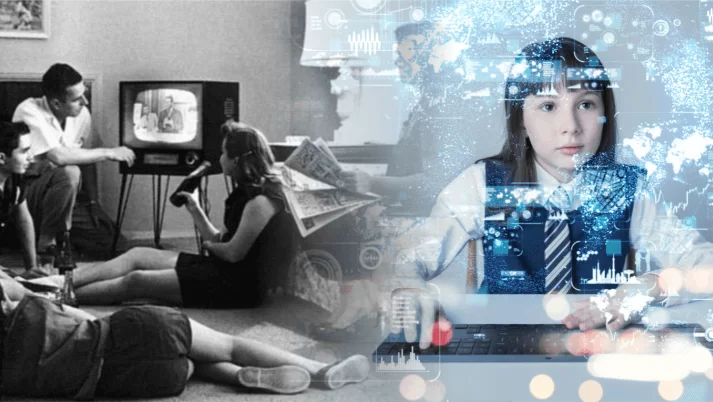
Beyond technological whiplash, another major barrier to getting familiar with new technology is a lack of interest. A PEW survey of older Americans found that 35% of respondents strongly disagreed that people lacking internet access were “missing out on important information.”
Since younger generations have had, in some cases, their entire lifetimes to appreciate modern technology, one might assume that they won’t be so incalcitrant. However, American political scientist Kevin Munger takes a different view.
“The rate of change on the internet is going to increase, and the extent to which we have people in their mid-twenties who already feel alienated from people in their teens who experience the internet differently is only going to become more serious unless the internet itself stops changing so quickly.”
I can speak to this alienation from my own experience. TikTok, a video sharing app, isn’t popular amongst my peers, but it has found an audience in people just a couple years younger than us. My younger sister, a recent adoptee, always seems surprised that I find many of the videos she shows me as inexplicable as our father does. While in theory, I should be just as plugged-in as my sister, I just can’t muster the same interest in memes anymore. Beyond this, as we age, we will inevitably find ourselves completely ignorant to fashionable currents online. In a couple decades, clinging to Facebook might be as obvious a marker of age as being a devoted Elvis fan.
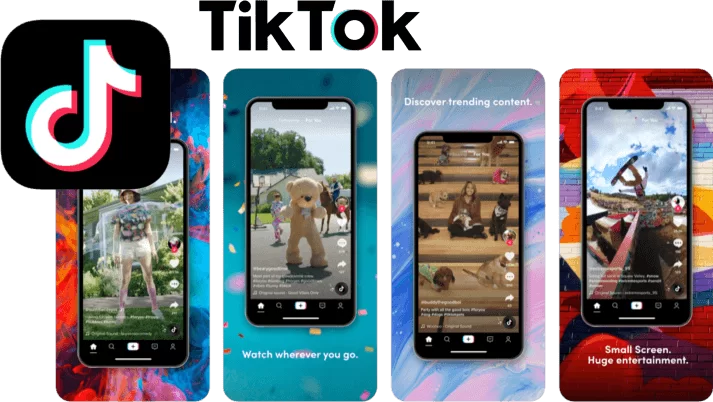
As it happens, there are more important consequences of the growing digital divide than my pedestrian ignorance of the meme du jour. A report commissioned by the UK’s Government Office for Science takes the stance that as the UK’s population ages, keeping our older citizens in work for as long as possible will be vital to our economy. The report predicts that this will likely include software retraining several times throughout their careers.
MySpace, one of the first major social media, set the stage for many of our modern anxieties. This teenage haunt allowed users to personalise an individual page, and upload photos of themselves. Through this digital display, users could curate an ideal self-image (even if at the time, that might have looked like this!).
Cringing asides, Myspace allowed you to publicly list your best friends as your “Top 8,” which was displayed prominently on your profile. Although we may laugh at how intensely political, and trivial it was, this “Top 8” was inherently tribalistic. By publicly declaring your most-valued friendships, you drew a line in the social sand. You could define yourself both by attaching others to you, and who you excluded. As we’ll soon discuss, this mode of strengthening social circles has endured, but not as blatantly as before.
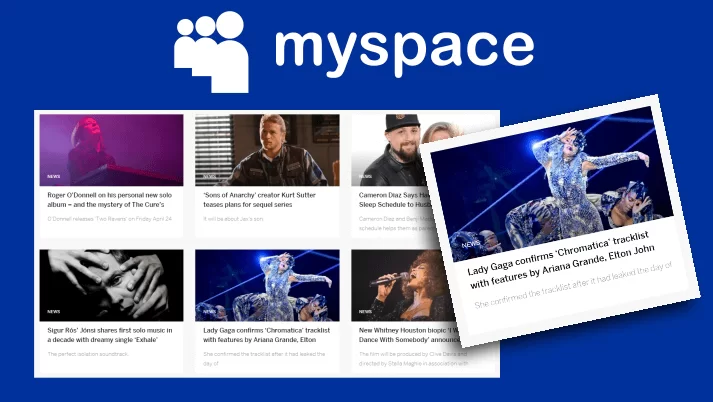
Although MySpace mercifully died off, this was hardly the end of digital peacocking. The convergence of smartphones, and social media in the early 2010s has dramatically extended this social performance. Instead of snatching an hour on the family computer, we can model, and watch others’ displays at whim. I don’t mean to imply that this is inherently bad. Us humans have always aimed to show ourselves at our best; be that through a selfie, or a gold-encased tomb. But what is concerning is how we can now constantly curate an ideal self-image, all the while comparing our true selves, warts and all, to our acquaintances’ highlight reels.
Several studies have already demonstrated that increased social media use correlates with decreased self-esteem, and sociability. If you’re scrolling through yards of your friends seemingly living their best lives, perhaps you might feel that your own life is a little dull in comparison. And worse - what if others agree? So in an effort to not be entirely eclipsed, you might pepper your own feed with shots of you at the many fabulous parties you attend, with your many fabulous friends...and the cycle continues.
But what about people who aren’t just modelling their best selves, but have become another person entirely? Apps like Facetune allow people to radically alter their appearance. It has become so prevalent that there are now people getting work done to make their filtered, edited faces reality.
Without whole-heartedly joining the finger-waggers, the Kardashians’ online presence is a fantastic example of the harm that excessive photo manipulation can cause. Their smooth skin, extreme figures, and total lack of cellulite are propped up by cosmetic procedures - and where reality falls short, Facetune. Some of their alterations are so blatant that they often appear on r/Instagramreality, where users point out the tells - wonky surroundings, and disproportionate features.
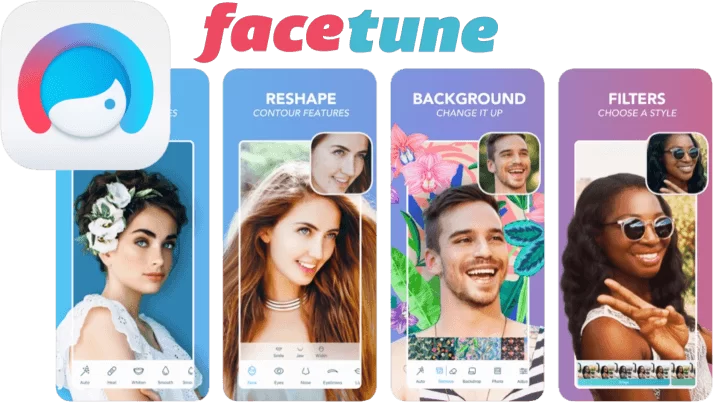
This technology has given rise to a curious phenomenon where the beauty ideal that people chase isn’t real. The Kardashian look can’t exist without its digital crutches. As the lines of reality become increasingly blurred online, people see these images, and cringe at not being able to live up to the same standards. And for those who struggle with such comparisons, having Instagram at fingertips’ reach can cause a downward spiral in self-esteem.
Our online privacy is increasingly at risk. It’s already well-known that many websites, including social media companies, use cookie trackers across the web. These cookies gather information about our online habits. This data is then sold to advertisers so they can tailor adverts to us.
In response to this, in 2018 the GDPR was implemented across Europe in a move to give consumers some say over what data they’ll hand over to websites.
Although this was a fantastic first step, I question the extent of its impact. How many of us have clicked “Accept” on the cookie consent boxes, just to get them out of the way? Richard Stallman, president of the Free Software Foundation, observed that
“The GDPR makes much of requiring users...to give consent for the collection of their data, but that doesn’t do much good. System designers have become expert at manufacturing consent...when a system is crucial for modern life...users ignore the terms because refusal of consent is too painful to consider.”
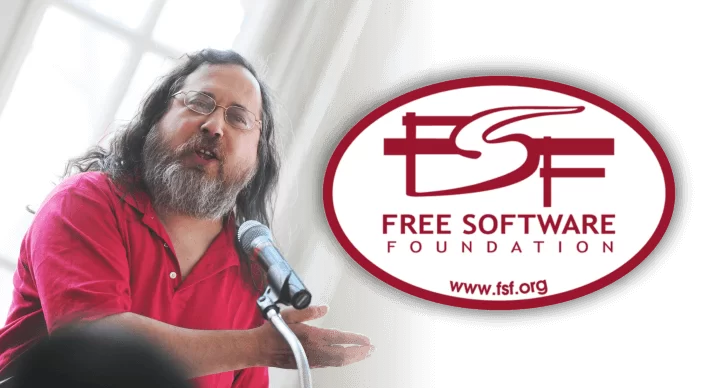
One example he gave was an experimental Wi-Fi hotspot. It would grant users internet access, in exchange for their first born children. Six people thought “yeah, fair enough,” and signed up. Although this is a ludicrous example, I think it does show how people will often favour convenience over digital security.
Beyond peddling your data to advertisers, social media sites keep track of your activity to use to their own advantage. Many social media sites use algorithms to show you related content that match your interests in a bid to keep you on their site for as long as possible. Although the results may be as benign as the cat videos on your feed, this also extends to the political. Eventually, it can create a digital echo-chamber. Since roughly two-thirds of American adults get at least some of their news online, this can quickly lead to political polarization. A notable example of this was the 2016 US election, which would have already been intensely divisive.
Social media is fertile ground for sowing fake news. The highly-publicized Russian meddling into the 2016 US election, and the Brexit referendum were turning points in the digital conversation. In 2018, Twitter revealed that it had identified almost 4,000 accounts associated with Russia’s Internet Research Agency, a troll farm that seeks to further Russian interests by spreading vitriol and misinformation online. The Telegraph reported that these accounts sent out millions of Tweets, including “a day-long blitz on the day of the Brexit vote.” With a hostile country purposefully stoking racial hatred, and division, our very democracy is at risk. Even though many of us are digitally literate, wading through all the opinions, ‘facts,’ and news online is a mammoth task. Who has the time to critically read them all, let alone guess if they’ve been written by a Russian hacker?
China has developed reams of technology to monitor its citizens. Tencent, a multinational conglomerate, released WeChat in 2011. As WeChat became increasingly intertwined with modern life in China, it’s true purpose rapidly became apparent. The Chinese government use it as a surveillance tool. Tencent can access deleted messages, and has no end-to-end encryption. To top it off, in 2017 they publicly confirmed that they share data with the government. Of course, you’re safe - as long as the government doesn’t suspect you.
In 2019, one BBC reporter described being locked out of his WeChat account for sharing images of a Tianamen Square memorial in HongKong. To regain access, he had to give a “faceprint” - a video of himself saying numbers in Chinese. What Tencent has done with this information is anyone’s guess.
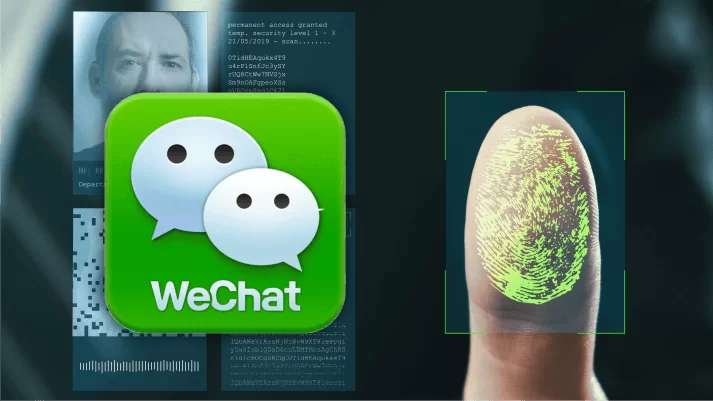
It’s easy to ask - “Why not avoid WeChat, if it’s that nefarious?” Unfortunately, it’s not that simple. Connie Chan explained this phenomenon, clarifying that WeChat is millions of “app[s] within an app,” that aims to fulfill users’ every need on one platform. She goes on to describe how integral WeChat is to everyday life;
“Along with its basic communication features, WeChat users in China can access services to hail a taxi, order food delivery, buy movie tickets, play casual games, check in for a flight, send money to friends, access fitness tracker data, book a doctor appointment, get banking statements, pay the water bill, find geo-targeted coupons, recognize music, search for a book at the local library, meet strangers around you, follow celebrity news, read magazine articles, and even donate to charity … all in a single, integrated app.”
Or as the same BBC reporter put it; “Twitter, Facebook, Googlemaps, [sic] Tinder and Apple Pay all rolled into one.” This year, WeChat amassed over a billion active monthly users. China has forced out the rest of the competition, by blocking apps like WhatsApp, and Messenger. Without any better options, people willingly invite the digital Gestapo into their own phone.
Depressing dystopias aside, there’s one much more basic way for others to surveil you - if you record yourself getting up to no good. Earlier this year, a video circulated on social media of Marcella Zoia, 19, throwing a chair off the balcony of a high-rise, onto a motorway below. A video shared for her friends’ amusement spread like wildfire, as it was recognised for the dangerous act it was. As it went viral, local police called for her surrender, and she was later charged with “mischief endangering life, mischief damaging property under $5,000 and common nuisance.”
And you don’t need to do something criminally stupid to be at risk. Just consider all of the public figures who have been crucified for ignorant, offensive things they said in the past. In early December 2018, it was announced that Kevin Hart would host the 2019 Oscars. However, when homophobic Tweets, such as this from 2011 “Yo if my son comes home & try’s 2 play with my daughters doll house I’m going 2 break it over his head & say n my voice ‘stop that’s gay',” surfaced, he was met with a wave of backlash. Eventually, he apologised for his remarks, and resigned as host.
Whether or not this was justified, this points to a prevailing attitude in social media use. People feel safe sharing their unvarnished opinions, without consideration for an unintended audience (such as potential employers), or how well those Tweets may age. Although most of us don’t have crowds digging through our timelines for gaffs, the phenomenon of ‘social media stalking’ has given us unprecedented access to others’ lives. Our private lives have become largely public, and accessible to just about anyone. Hopefully, the worst that people find are photos from pubescent misadventures (an unfortunate fringe, in my case).
We’ve previously touched on how the digital world has become a virtual reality in its own right, but let’s explore an additional layer to this morass. Coined in the 1950s, the term parasocial relationships refers to a one-sided, illusory relationship between an audience and entertainers. Often, viewers come to view these entertainers as friends, although they are aware that they don’t have a real connection.
Many Youtubers have exploited this phenomenon to foster a devoted fanbase. They film themselves speaking ‘directly’ to viewers, develop in-jokes, and often share intimate details about their personal lives. By being so open about themselves, they create a sense of closeness. By leaning into how close their audience feels to them, they can become successful advertisers. Sponsorship opportunities abound for such ‘influencers,’ since their audiences are so primed to take their word as gospel.
Youtube’s ‘beauty guru’ community offers an insight into how far parasocial relationships can go. Overtime, these Youtubers expanded on simple makeup tutorials, to create more involved videos. Popular video styles such as “get ready with me” show them donning their makeup in preparation for an event, all while sharing their thoughts with the viewer. It creates the feeling of being right there with them; just two friends having a natter before they go out. This ‘authenticity’ is their selling point. They aren’t inaccessible, high-powered models. They’re ordinary (if glamorous) people who can be relied on to give you advice on eyeliner, and life.

But there’s another side to this warm, inviting community. Beauty gurus duking it out on Twitter regularly make headlines, and have fans racing to pick sides in the forthcoming battle. Last summer, there was an enormous scandal over, amongst other things, racist Tweets. One Youtuber, Laura Lee, lost over half a million subscribers, and business deals in the fallout. ‘Drama channels,’ dedicated to rubbernecking at these social media antics, rushed to cash in on the excitement. As petty as Lee’s Tweets were, the extreme backlash shows that this drama was real to people. Subscribers felt so invested in the gossip that millions of people devoured videos picking over those involved, attacked those on the other side, and hobnobbed in dedicated forums. This level of fandom is near-unprecedented. ‘Real-life’ celebrities often don’t accrue this level of notoriety, thanks to the distance they keep between themselves and their fans. But when influencers cash in on their truly virtual relationships with their audience, anything goes.
Although VR can be seen as the natural progression of our current technology habits, it hasn’t yet become mainstream. In part, this may be due to fears about the technology. The Google Glass, released to great fanfare in 2013, struggled with another concern that would eventually toll its death knell. Fears about invasions of privacy was a major blow, and Google halted Glass production less than two years later. Despite Google’s attempts to hawk their wares at New York fashion week, It seems that the Glass took being tethered to technology too far. The Glass was more gawky, less trendy. Although the new Glass Enterprise Edition has recently found a niche in production-lines, Google hasn’t attempted to hawk a pair to the average consumer since.
People’s fears haven’t improved much since then. A 2017 survey about British adults’ thoughts on VR showed prevalent concerns that VR could be used to commit virtual criminal acts, and cause users to become less aware of the world around them, or even to become addicted to VR. A smidge ironic, considering how tethered we are to our smartphones!
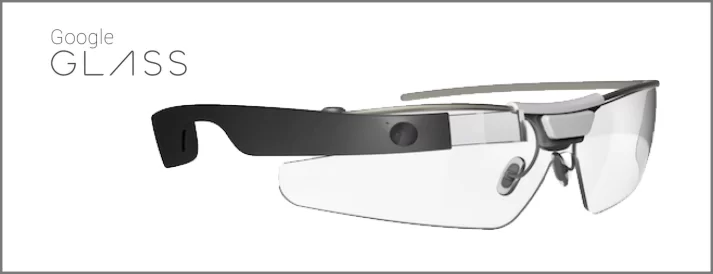
However, it shouldn’t all be doom and gloom. We can easily imagine positive uses of the technology, like Ernest Cline did in his novel Ready Player One. The VR world of OASIS was better than the main characters’ impoverished reality. It was a platform for learning, social connection, and an escape. Hopefully for us, VR won’t be a desperate alternative to a depressing reality, but it’s interesting to consider the technology’s positive potential.
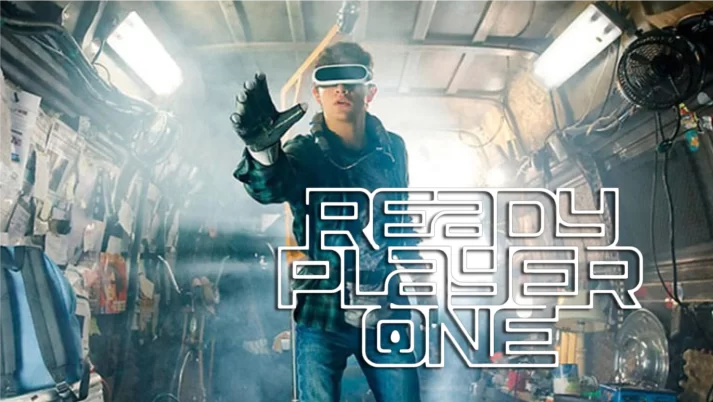
At present, likely avenues for VR’s development are native browsers, and improvements to usability. Dan O’Brien, HTC Vive’s General Manager, described how their Vive Reality system project is aiming to expand the Vive’s functionalities. “We’re...making it easier for customers to use a native browser in VR for video, retail, and more through a partnership with Mozilla and Amazon Sumerian, and redesigning how VR should look and feel with our Vive Reality System project.”
In addition to this, work is being done to make VR headsets less intimidating. Wireless, stand-alone headsets will make the jump to this new medium a lot less daunting. Further development into improving resolution, reducing nausea, and making headsets less bulky are all improvements that can be made to coax new customers into getting on board.
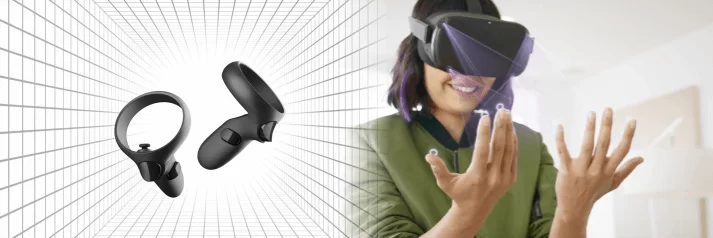
As VR technology develops, there is great potential for VR as a storytelling medium. By giving players a physical presence in the story, the game’s emotional impact takes on a deeper dimension. Chris Alderson, a co-founder and art director at Polyarc, reminisced about how players reacted to Quill, a sweet little mouse, and protagonist of Moss.
“The best way to explain the love and care players can experience in VR is to compare meeting...Quill to meeting your new puppy in person for the first time—it tugs at your heartstrings in a natural way, something you just can’t experience on a flat screen...I've seen the power of VR and how it opens an opportunity for players to build an emotional connection with a character.”
Given this powerful narrative potential, perhaps people’s fears about “becoming addicted to VR” are justified. The image of people becoming literally closed off from the world, trapped beneath bulbous headsets, is a scary one. However, I would argue that VR doesn’t pose the same allure as a smartphone. To use the Glass as an example again - its debut at New York Fashion Week, toted by supermodels galore, didn’t prevent them from looking silly. And if aesthetics held people back from the sleek Glass, imagine who would wander around with a clunkier pair? The great appeal of the smartphone is that it is discreet, and always at arm’s reach. At least for the near future, I doubt we’ll see crowds jumping en-masse to this new medium. However, I do believe it will become hugely popular in gaming - as soon as the technology, and storytelling develop.
Within the past couple decades, the integration of the internet, and social media into modern life has radically altered our society. As these technologies continue to evolve, a broadening digital divide has formed not just between young and old, but intra-generationally. I have argued that the digital world has become a form of virtual reality in its own right. It is a way to define your identity to your peers; whether through your posts, or who you choose to share your small spotlight. The blurring of reality online, whether it be a Kardashian selfie, or orchestrated misinformation, have created a digital hall of mirrors. Without real diligence, we are regularly confronted online with lies masquerading as plausible truth. Even our own digital presences can be incriminating. Online battles are being waged over careers, all over offensive Tweets.
With all of these digital growing pains, it’s not surprising that people feel some trepidation about actual Virtual Reality. A survey of British adults showed that many feared VR users becoming insulated from the world around them. However, I have argued that due to the very nature of VR (at least, in its current form), it is far too bulky to get under our skin the way smartphones have.
But after thousands of words filled with doom and gloom, I hope I haven’t completely scared you off. Before you start packing your bags for an isolated cabin in the woods, I hope to impress on you the many positives that these technologies can have. Reaching out to the people who matter, finding warm communities to gab with about your hobbies, and finding out more about the world around me are all things I love about the digital world. I think we will all eventually find an equilibrium; allowing social media, and the internet to enhance our lives - not detract from them.
If you would like to comment on the article, please do so in the comments section below...

Cyber Generation Unknown